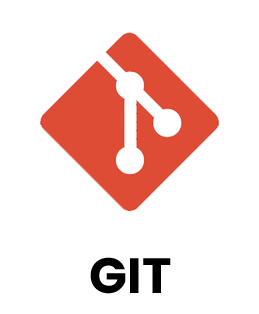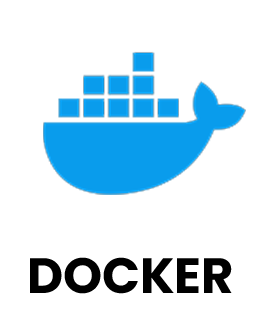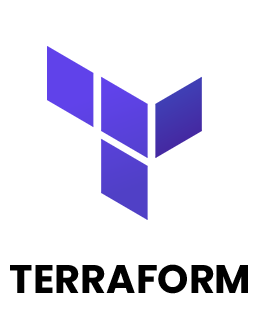DevOps Course in Gurgaon includes DevOps life cycle management and CI/CD DevOps pipeline. The DevOps course will prepare you with the automation, coding, scripting, collaboration, communication, and DevOps tools. DevOps Certification Course will also train you with the culture to provide the fastest delivery of software to the market with a lot of other benefits. You will have a fast-paced career with some of the hot DevOps tools such as Chef, Jenkins, Bamboo, Git, Docker, Teamcity, and, Nagios.
Additional Info
Why we choose DevOps:
DevOps, which combines the words development and operations, is a collection of technologies and techniques designed to improve an organization's capacity to deliver products that are smoother, faster, and, ideally, bug-free. People (and culture) are at the heart of DevOps, which aims to increase communication between operations and development teams. Continuous Integration, which aids in any issues that arise during the coding stage, is at the heart of the DevOps strategy. Automatic Testing, which allows the repair of earlier detected bugs, continuous deployment without time-consuming manual testings,for automatic installation of environmental changes. Teams can share codebase in a DevOps environment, benefit from continuous integration, and use automatic deploys to detect problems early in the development process.
Save time:-
DevOps is all about boosting communication between development and operations teams, which leads to a shorter development cycle time by increasing the frequency with which deploy code into production. The same cycle can condense to a daily or even hourly release-build by implementing DevOps. Continuous development and deployment give firms a competitive advantage, boosting IT's value to the company.
Responsibilities and Roles of DevOps:
DevOps teams serve as go-betweens for IT operations and engineering. While DevOps teams rarely engage with external customers, they maintain a "customer first" approach to ensure that both internal and external customers receive high-quality service and goods. To grow cloud programs, plan and design workflow processes, develop automation procedures, deploy updates, and so on, DevOps teams collaborate with other organizations.
- DevOps Evangelist – The chief executive officer (leader) in charge of implementing DevOps.
- Release Manager – The person in charge of launching new features and verifying product stability after they are released.
- Automation Expert — The person in charge of attaining tool automation and orchestration.
- Software Developer/Tester - The person who creates and tests the code.
Skills Required of Devops:
- Configuration management and deployment tools such as Puppet, Ansible, Chef, Terraform, and others should be well-known.
- Scripting, Git, and Git workflows are all skills you'll need.
- CI/CD (Continuous Integration/Continuous Delivery) pipeline development experience.
- Scripting And Linux Fundamentals.
- Expertise in a variety of DevOps tools and technologies.
- Infrastructure As Code For Continuous Integration And Continuous Delivery.
DevOps key principles Soft skills:
Documentation:-
Writes server-side feature specifications and documentation.
Analysis of systems:-
Analyzes current technology and develops improvement and expansion plans and processes. The DevOps engineer supports urgently needed analysis.
Project planning:-
Their knowledge of system options, risk, impact, and cost vs. benefits shares in project planning meetings. DevOps engineers also communicate operational needs and development forecasts. Testing examines code, procedures, and deployments to find ways to improve efficiency and reduce errors.
Deployment:-
Configuration management software uses to push updates and fixes to the production environment automatically.
Troubleshooting and maintenance:-
Maintains the production environment by performing routine application maintenance. Helps to create inspection standards and procedures.
Performance management:-
Performance management suggests performance improvements by analyzing gaps, identifying alternative options, and assisting with changes.
Management:-
The DevOps engineer may also be in charge of supervising a team of DevOps engineers.
The different types of Tools in DevOps:
The development, testing, and deployment technologies for automated CI/CD pipelines are involved in DevOps' process. If you want to work as a DevOps engineer, you should learn about deployment tools that aid in continuous delivery and custom automation scripts. Some of the famous DevOps tools are as follows:
- Git and Hub Git – Management of source code (Version Control System)
- Jenkins – Server automation for CI/CD pipelines plugins.
- Selenium – Testing for automation
- Containerization software platform for Docker
- Cubans – Orchestration of container tool
- Puppet – Managing and Deploying Configuration
- Head – Management, and deployment configuration
- Ansible – Managing and Deploying Configuration
- Nagios – Monitoring continuously
Tools for source control:-
Git, Jira, and Subversion are examples of source control technologies that can help you keep track of project changes. It allows you to go back to an earlier version of the code at any time. It is helpful when new defects occur since you can compare a working of the code to the current version to find and repair issues.
Toolkits for continuous integration:-
When developers commit changes to a version control repository numerous times a day, continuous integration uses to automate code testing and builds. For example, Jenkins, Buildbot, and Buddy provide developers with consistent feedback on the status of deployed software.
Team management capabilities:-
A range of team management tools is available, including the Agile Manager and the Agile Bench. Both help you manage teamwork, monitor the status, and manage timetables.
Visualization tools:-
Lucidchart can help you view and share these diagrams with team members to foster cooperation from all over the world through complex networks, coding, and infrastructure.
The most imporatant benefits of DevOps:
DevOps makes Continuous Integration and Continuous Delivery easier for development teams. It enables them to bring solutions/products to market more quickly.
The following are some of the most significant advantages of DevOps:
Predictability:-
For new releases, DevOps has a much-reduced failure rate.
Maintainability:-
In case a new release crashes or disables the present application, a simple recovery mechanism is available.
Reproducibility:-
The builds of the code are versioned so that a previous version restore if necessary.
Enhanced Quality:-
DevOps allows the team to increase application development quality by incorporating infrastructure issues.
Marketing time:-
DevOps reduces market time by streamlining the delivery of software (by 50 percent ).
Risk reduction:-
DevOps integrates security attributes into the life cycle of software and helps to reduce defects throughout the life cycle.
Effectiveness of costs:-
DevOps also offers software development cost-effectiveness is a senior management aspiration.
Resiliency:-
The system is more stable, secure, and auditable for modifications.
Breaks larger codebase into handy parts:-
The agile programming method uses for DevOps. It allows the breakdown in smaller and manageable pieces of larger codebases.
Payscale of DevOps:
An entry-level DevOps Developer may expect to make roughly Rs. 366,337 per year. The average DevOps Developer salary at the mid-level is Rs. 1,142,206 per year. Senior DevOps Developers makeover Rs.1,632,155 per year.
A Development Operations (DevOps) Engineer earns an average of 96,423 a year.








































